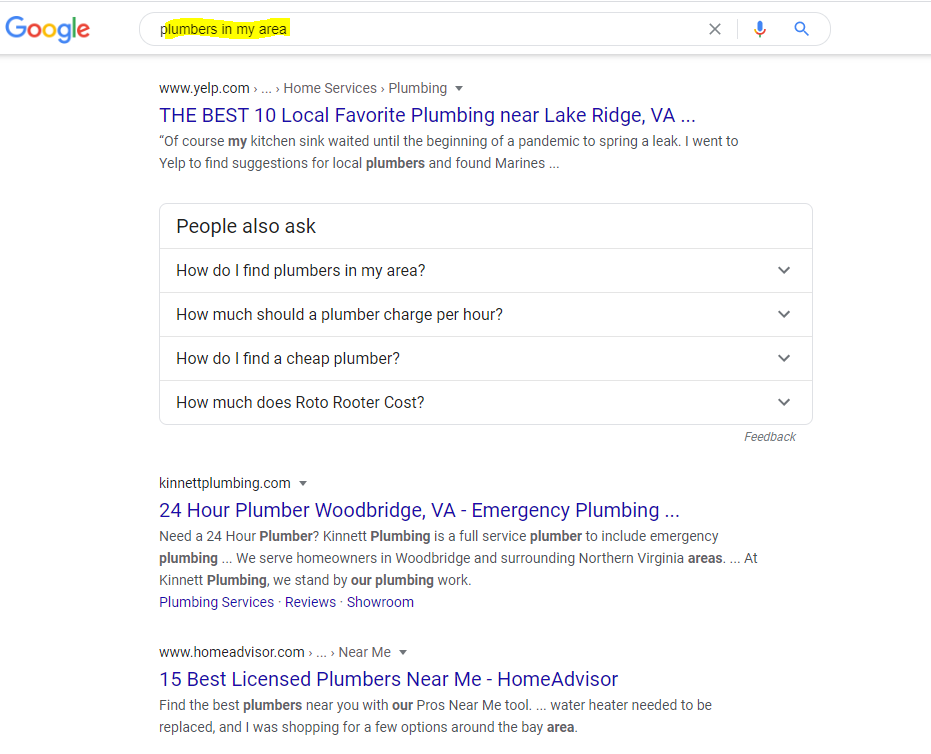Did you know there are over 1.5 BILLION websites on the Internet (Source: Internetlivestats.com)?
Your company is just a tiny fish swimming in an enormous ocean and needs all the help it can get to stand out in the crowd. A great place to start with being more visible online is SEO, an acronym which stands for Search Engine Optimization, basically meaning: “Can My Customers Find My Website on Google?”
When potential customers search for your company’s products and services online (about 68% in the USA use Google) they type in search terms know as keywords, and Google returns a list of search results including advertisements related to their keywords.

Every business wants to be on the FIRST page of Google
Sometimes referred to as the “Page One Unicorn” since most people are in a hurry and want the information quickly and don’t want to spend too much time delving through dozens of links and web pages to find the information they want.
So in the context of SEO and Google searches, my clients are always looking at ways to show up on the first page of Google and we help them OPTIMIZE their page and web traffic so they can reach that coveted first page.
There are two kinds of SEO Techniques to improve your search results:
On Page SEO (Changes you can make to your website)
Off Page SEO(Things you can do everywhere else)
In this two-part article, I will be explaining ON PAGE SEO and cover FOUR strategies you can implement right now to improve your SEO results.
Four On Page SEO Tips For Being More Visible on Google:
- Is your website mobile friendly?
- Does it contain relevant and helpful content?
- Is your website structured properly for SEO?
- Are you using keywords in your page URLS?
Is your website mobile friendly? Millennials increasingly use their mobile devices (smartphones, tablets) as the only access point for Internet activity. Your website should be optimized for mobile and not require “pinching and zooming.” Use a mobile responsive template for your page and test for appearance and navigability on your cellphone.
Does your site contain relevant and helpful content? Both the search engines and your intended audience appreciate fresh, updated information about your business’ products and services. Subject matter articles/blog posts of 250 to 400 words with appropriate titles are essential.
Is your website structured properly for the search engines? Do you have multiple pages for your products and services? Is your site easy to navigate for potential customers to find the information they are looking for? Review your page structure hierarchy and your menus for ease of use and relevant content descriptions.
Are you using keywords in your page URLs? When a visitor to your page clicks on a menu link to visit another page, does the URL show a bunch of numbers and symbols like this?
EXAMPLE-https://www.pewresearch.org/topics/br%hmillx
Or does it reflect in “plain English” the subject of the page like this:
https://www.pewresearch.org/topics/millennials/
The keyword “millennial” in the second example is a clearer designation of the page content which then shows higher on search engine rankings.
I hope you have found some helpful information and actionable steps you can take right now to improve your website’s SEO results.
To your success!
Ralph
